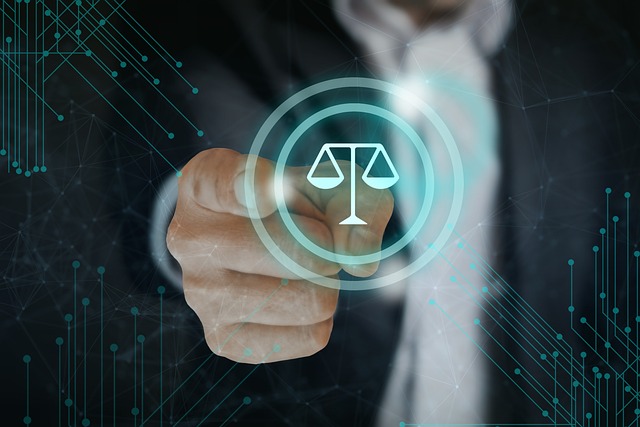The "Role of Ethics in Criminal Law Prosecution" highlights the vital importance of ethical considerations when tackling white-collar crimes, especially fraudulent financial practices like embezzlement and Ponzi schemes. Prosecutors play a key role in ensuring fairness, protecting victims, and upholding justice by adhering to strict ethical standards throughout investigation and prosecution. This section emphasizes the broader societal impact of criminal law in deterring unethical behavior, while balancing justice with integrity within the financial sector. By prioritizing ethical conduct, legal professionals can strengthen cases, foster trust, and ensure justice without undermining business environments. Preventative measures, such as robust internal controls and employee training, are also crucial to deterring fraud. Upholding high ethical standards is paramount for legal professionals to ensure fairness and integrity in financial cases.
Fraudulent financial practices pose a significant threat to economic stability and trust. This article delves into the complex world of financial fraud, exploring its various forms, from common schemes like identity theft to more intricate manipulation of financial markets. We analyze the legal framework, focusing on the crucial role of ethics in criminal law prosecution. Understanding these dynamics is essential for strengthening ethical standards and preventing future fraudulent activities.
- Understanding Fraudulent Financial Practices: Definitions and Common Schemes
- The Legal Framework: Criminal Law and Its Role in Prosecutions
- Ethics in Action: Challenges and Considerations for Prosecuting Fraud
- Preventative Measures and Future Prospects: Strengthening Ethical Standards
Understanding Fraudulent Financial Practices: Definitions and Common Schemes
Fraudulent financial practices encompass a range of illegal activities designed to deceive individuals or institutions for monetary gain. These schemes can take various forms, from embezzlement and falsification of financial records to complex Ponzi schemes and insider trading. Understanding these practices requires delving into their specific definitions and common strategies employed by perpetrators.
The role of ethics in criminal law prosecution is pivotal when addressing fraudulent financial practices, particularly in high-stakes cases involving white collar defense. White collar and economic crimes often require meticulous investigation and nuanced legal strategies due to their intricate nature. Prosecutors must navigate complex financial transactions, uncover concealed assets, and present compelling evidence to secure justice. By upholding ethical standards, the criminal justice system ensures fairness, protects victims, and sends a strong message that such fraudulent activities will not be tolerated.
The Legal Framework: Criminal Law and Its Role in Prosecutions
The legal framework surrounding fraudulent financial practices is a robust system designed to uphold integrity in the world of finance. Criminal law plays a pivotal role in this, serving as a deterrent and ensuring accountability for those who engage in unethical conduct. When it comes to prosecutions, the focus is not solely on the violation of laws but also on the ethical implications. The role of ethics in criminal law prosecution is instrumental in determining sentences and decisions, especially in high-stakes cases.
In these situations, the respective business practices are scrutinized under a lens that considers the broader impact on society. A complete dismissal of all charges is not typically an option; instead, legal proceedings aim to send a clear message that such fraudulent activities will not be tolerated. This approach balances the need for justice with the desire to encourage ethical behavior in the financial sector.
Ethics in Action: Challenges and Considerations for Prosecuting Fraud
The role of ethics in criminal law prosecution is paramount when addressing fraudulent financial practices. As legal professionals navigate these complex cases, they must weigh the integrity of their actions against the weight of evidence. The challenge lies in ensuring that justice is served without compromising the principles that underpin ethical conduct. When prosecuting fraud, every step must be carefully considered to avoid any perception of misconduct or bias, which could lead to a complete dismissal of all charges.
Prosecutors face the delicate task of presenting a robust case while adhering to their professional duties. This requires a meticulous approach, where facts and circumstances are meticulously evaluated. By prioritizing ethics in action, legal teams can strengthen their arguments, build credible cases, and ultimately foster trust in the justice system. The pursuit of justice for fraudulent activities should be a harmonious blend of legal expertise and moral integrity, ensuring that those who engage in such practices face the consequences, without undermining the sanctity of the respective business environment.
Preventative Measures and Future Prospects: Strengthening Ethical Standards
Preventative measures are crucial in combating fraudulent financial practices. Strengthening ethical standards within the respective business environments is a game-changer. By integrating robust internal controls and promoting a culture of integrity, organizations can deter potential wrongdoers. Regular training sessions and workshops on ethics and compliance can help employees understand their responsibilities and the consequences of unethical behavior. Additionally, incentivizing honest reporting mechanisms encourages staff to come forward without fear of retaliation, fostering an environment where fraud is less likely to thrive.
Looking ahead, the role of ethics in criminal law prosecution cannot be overstated. As legal professionals navigate complex cases, they must uphold the highest ethical standards to ensure justice prevails. This involves avoiding conflicts of interest, maintaining client confidentiality, and acting in the best interests of all parties involved. By embracing transparency and accountability, the legal system can work towards complete dismissal of all charges where clients are wrongfully accused, thereby ensuring fairness and integrity in the financial sphere.
In conclusion, understanding fraudulent financial practices, their various schemes, and the legal framework that governs them is paramount. The interplay between ethics and criminal law plays a crucial role in prosecuting fraud effectively. By acknowledging the challenges and implementing preventative measures, we can foster stronger ethical standards and fortify our defenses against deceptive financial practices. This multi-faceted approach ensures a more robust and just system for all.






